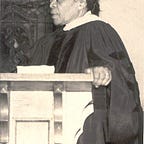History 101: Booker T. Washington, W.E.B. Du Bois, and Palmer Memorial Institute
In this series, History 101, we’ll explore some of the topics and questions we frequently discuss at the Charlotte Hawkins Brown Museum.
Today, we’ll explore some of differences between two leaders in African American Education, Booker T. Washington and W.E.B Du Bois. How did the theories of these two men differ so drastically during the same period in American History? How did both of their ideals affect Dr. Charlotte Hawkins Brown and her creation of Palmer Memorial Institute?
Booker T. Washington
Booker T. Washington was born into slavery. At the age of nine, Washington’s family gained freedom after the Civil War. In 1881 Washington founded the Tuskegee Normal and Industrial Institute which focused on teaching African Americans agricultural and industrial pursuits. In 1895, Washington publicly put forth his philosophy on race relations in a speech at the Cotton States and International Exposition in Atlanta, Georgia, known as the “Atlanta Compromise.” In his speech, Washington stated that African Americans should accept disenfranchisement and social segregation as long as whites allow them economic progress, educational opportunity and justice in the courts. He asserted that vocational education for blacks was more valuable to them than social advantages like higher education or political office.
W.E.B. Du Bois
Du Bois was born in the North and never experienced slavery. When he attended Fisk University in Tennessee in 1885 he faced Jim Crow laws for the first time. Du Bois criticized Washington for not demanding full equality for African Americans, as granted by the 14th Amendment. Du Bois fought for full and equal rights in every realm of a persons life. In 1903, Du Bois published The Souls of Black Folk, a collection of 14 essays. In one of these essays he directly responded to and critiqued Washington’s stance. Du Bois felt that African Americans should fight for equal rights and higher opportunities, rather than passively submit to the segregation and discrimination of Washington’s Atlanta Compromise.
How did both of these views affect Dr. Charlotte Hawkins Brown when she created Palmer Memorial Institute?
Dr. Charlotte Hawkins Brown was a study in contrasts. When Palmer Memorial Institute was founded in 1902 it was open as an academic and industrial school. Dr. Brown seemed to seamlessly adopt both opposing educational philosophies in her school. Though she did not fully embrace the industrial model of Booker T. Washington, Dr. Brown believed that young Black students should be trained to work with their hands. She required students to work on the campus farm and do chores related to the maintenance and upkeep of the school. She was also influenced by Du Bois concepts of education and offered a liberal arts education to her students. Her own educational philosophy was called the “triangle of achievement.” Her aim was to help students become, “educationally efficient, culturally secure, and religiously sincere.”
